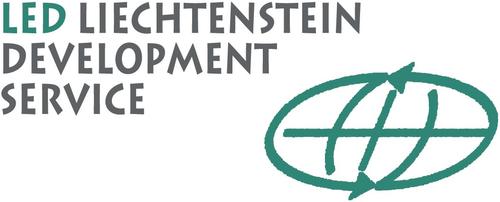Zambia: Housing for health workers
Good housing attracts health workers. More staff means better patient care in rural health centres.

Healthcare provision in rural Zambia is inadequate and this is mainly due to a lack of staff. Together with the Hilti Foundation, SolidarMed has set up a housing cooperative that builds accommodation for health workers and students. This makes working or training at a rural health centre more appealing.
Key project facts
-
Aim of the project
To build housing for hospital staff and students in rural Zambia. This in turn improves the quality of patient care and allows more students to be trained.
-
Target groups
Hospital staff and students who are reliant on appropriate housing in rural areas for their work or training.
-
Milestones
Creation of the housing cooperative Ubuntu Homes by SolidarMed in 2011. In future it will be independent and self-financing.
-
Methods
Building or renovating housing for health workers and students.
Key project facts

Zambia

Adequate housing for health workers and students
Hospitals in rural Zambia are chronically underfunded and are unable to provide adequate housing for staff and students on their own. But a lack of housing means a lack of staff and therefore insufficient healthcare for local populations. SolidarMed is helping tackle this by building and renovating houses and hostels. Decent housing provides an incentive for healthcare professionals to work at rural and remote health centres or hospitals. It also houses students during their practical training. This in turn helps to increase the number of student training places, which benefits hospitals and ultimately local populations.

«SolidarMed builds staff houses to keep qualified staff in rural hospitals.»
Nzila Lubinda, Project Manager Zambia
Independence of Ubuntu Homes
The building of accommodation started as a development project led by SolidarMed. It has since led to the creation of a housing cooperative called Ubuntu Homes – an independent social enterprise that rents out and maintains the buildings. By the end of 2023, a total of 120 houses and 5 hostels are to be built in various provinces, thereby ensuring better healthcare provision in the long term. SolidarMed and the Hilti Foundation have started to take a step back from the project and will be gradually transferring overall responsibility to local actors.
Sustainable construction
Sustainability and environmental credentials are also a key part of this project. Since 2019 the houses have been built using blocks that are manufactured locally on the building site. They are produced on site from local red earth and cement, which is formed in moulds using a manual or hydraulic press, and then dried by the sun. The manufacturing process uses significantly less cement and saves on transport. Where there is no existing water and power supply, solar-powered boreholes and solar lighting systems are installed. The houses are also built in such a way that little or no heating or cooling is needed to keep them at a pleasant indoor temperature.
A pioneering project
The housing cooperative is also affiliated with a government-accredited vocational training programme, which provides disadvantaged young people with skills training in construction, thus giving them employment prospects. The training takes place on construction sites directly as part of renovation work on staff houses. After completing the training, young people are given a government-accredited certificate that opens doors to the labour market.
Through this holistic approach, SolidarMed is addressing a pressing infrastructure problem in rural Zambia and has laid the foundation for a locally-managed social enterprise that also includes vocational training for disadvantaged young people. The project serves as a model in international cooperation.
In collaboration with

Hilti Foundation
Learn more
Liechtenstein Development Service LED
Learn moreLatest news from Zambia
Discover exciting stories and news from our projects in Zambia.








